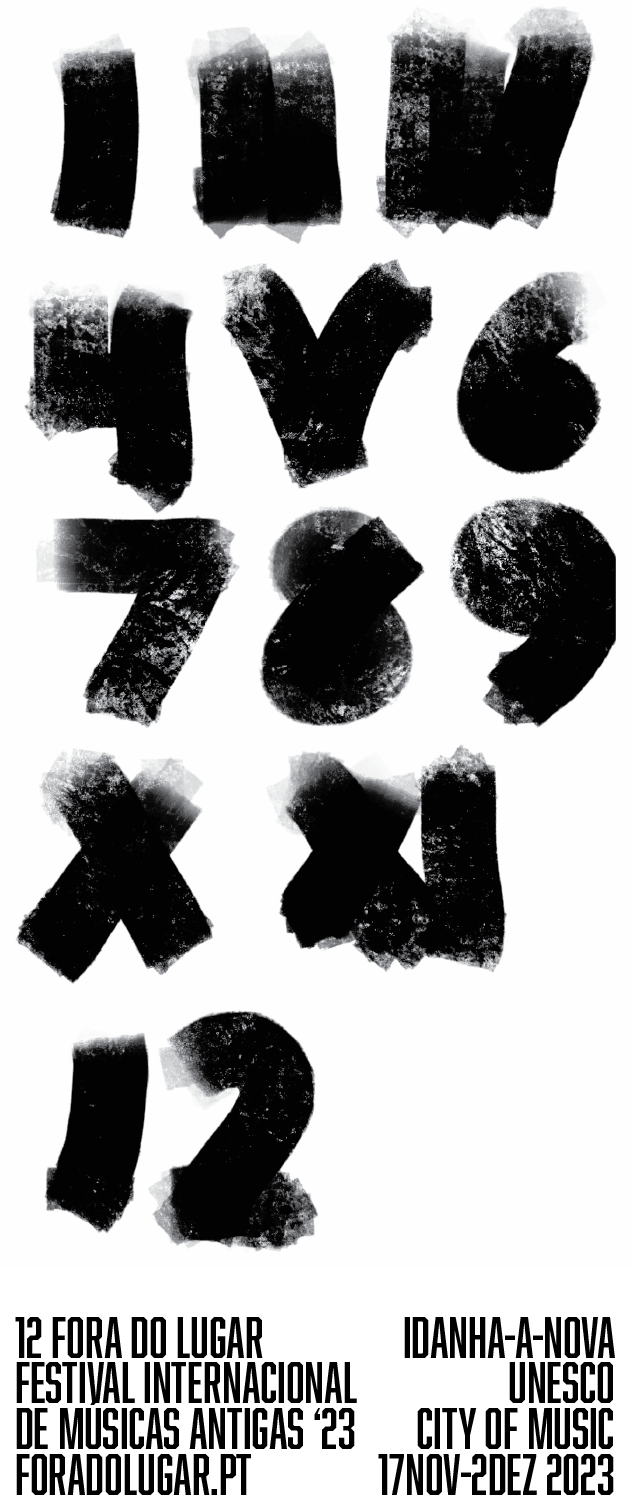Exposição
Exhibition
18.11.2023
16h30-17h30
As cantigas são tantas, que a mim até se mudam
Museu dos Sons Perdidos, vol.3
IDANHA-A-NOVA
CENTRO CULTURAL RAIANO
Ensaio: Ouvimos as palavras e os sons feitos de alegria, desgraça, escolha, vontade, de hoje, de ontem. Exercício: As palavras são âncoras, ditas ou escritas, gritos, sussurros. Experiência: As cantigas têm palavras lá dentro (e são tantas). As pessoas também. E o lugar. A voz deste lugar, São Miguel d’Acha, na voz desta mulher, Fátima Torrado Milheiro, nascida, aqui, em 1944. Esboço: Riscos sobre o poder da palavra, cantada, sofrida, falada, feliz, contida. Prova: Som sobre fotografia. Invisível sobre sais de prata. Ensaio: A voz não tem corpo nem cara.
O corpo (ou a paisagem) tem esta voz.
Tempo a passar.
E a paisagem, um veículo.
Museu dos Sons Perdidos
Dizem que Guglielmo Marconi (1874-1937), físico e inventor italiano, padrinho da tecnologia rádio, acreditava que o som não morre. Sonhava ouvir os sons perdidos, tocar nessas frequências eternas. Podíamos ouvir tudo. Ouvir a primeira inspiração dos nossos filhos e dos nossos pais. Ouvir o primeiro grito da Humanidade, cada sermão, conselho sábio ou riso de todas as gerações. Ouvir o som grave da primeira erupção ou o canto agudo daquela ave que escapou para longe. Todos nós podíamos ouvir tudo. Ouvir tudo, para sempre. (...)
Essay: We hear the words and sounds made of joy, misfortune, choice, will, of today, of yesterday. Exercise: Words are anchors, whether spoken or written, shouted or whispered. Experience: Songs have words in them (and there are so many of them), and so do people. And the place. The voice of this place, São Miguel d'Acha, in the voice of this woman, Fátima Torrado Milheiro, born here in 1944. Sketch: Lines about the power of words, sung, suffered, spoken, happy, contained. Proof: Sound on photograph. Invisible on the silver salts. Essay: The voice has no body or face.
The body (or the landscape) has this voice.
Time passes.
The landscape as a vehicle.
Museum of Lost Sounds
It is said that Guglielmo Marconi (1874-1937), Italian physicist and inventor, godfather of radio technology, believed that sound did not die. He dreamt of hearing lost sounds, playing on those eternal frequencies. We could hear everything. The first breath of our children and our parents. The first cry of humanity, each sermon or wise counsel, and the laughter of every generation. The deep sound of the first eruption and the high-pitched song of the bird that escaped far away. We could all hear everything. Everything, forever. (...)
LIVRO Prefácios: Paulo Longo, Luís Pedro Cabral, Filipe Faria
Edição: Arte das Musas | Colecção: Museu dos Sons Perdidos
1ª Edição Idanha-a-Nova 2023 | ISBN 978-989-95983-7-9
© Arte das Musas 2023 | www.museudossonsperdidos.pt
Luís Pedro Cabral
(...) Só pode, portanto, ser de lá, de um desses esconderijos mágicos, que emerge a voz de Maria de Fátima Milheiro, fiel guardiã do romanceiro da aldeia de São Miguel d´Acha, dos usos e costumes, das mais fundas tradições da identidade miguelense. O seu cantar é visual, transporta-nos para a vida como ela era, na sua etnografia. Quando canta, é como se o tempo desfilasse e as suas gentes povoassem de novo o território. Trechos de paisagem, de vida, pura e dura, que emergem da sua voz, como a sua voz emerge do silêncio.
Por estranho, o som sempre foi o mais belo pretexto para o silêncio. (...)
(...) A faithful guardian of the popular songs and poems of oral transmission from the village of São Miguel d'Acha, of its customs and traditions, of the deepest roots of its identity, Maria de Fátima Milheiro's voice can only have emerged from one of these magical secret places. Her singing is visual; it transports us to life as it was, in its ethnography. When she sings, it is as if time has receded and the people of old were once again right there in the territory. Snippets of landscape, of life in the raw emerge from her voice, just as her voice emerges from silence.
And, oddly enough, sound has always been the most beautiful pretext for silence. (...)
Paulo Longo
(...) Por essa razão, há que ouvir as vozes enquanto elas são senhoras de si, articuladas e capazes de nos prender ao fio das suas histórias, no calor das suas canções.
Aqui, como noutros lugares, o mundo da memória é um mundo de perdidos, mesmo quando achados e guardados. Porque as vozes partem e, nem sempre, outras há que lhes consigam dar continuidade. Missão terrível e intimidante, sobre a qual continuará a correr muita tinta, a haver muita discussão, entre o consenso e a ruptura. Inevitavelmente, pelo meio perdem-se vozes, vozes que importam, vozes legado. E, não raro, nem se dá por isso: não há tristeza maior. É como viver sem amor. Sim. Pois estes legados não se carregam de ânimo leve, há que ter-lhes amor. Como a D. Fátima Milheiro tem pelo seu. Forte, intenso, quase feroz. Mas sempre, sempre disponível para o partilhar. Na sua voz.
(...) For this reason, we have to listen to the voices while they are their own masters, while they remain articulate and capable of holding us in the weft of their stories, in the warmth of their songs.
Here, as elsewhere, the world of memory is a world of that which has been lost, even when found and held on to for safekeeping. Because voices depart, and there will not always be another voice to follow. A terrible and daunting task; one which will continue to attract much debate and discussion, between consensus and rupture. Inevitably, voices are lost in the process, voices that matter, voices of legacy. And we often don’t even realise it. There can be no greater sadness. It is like living without love. Yes. Because these legacies cannot be taken lightly, we have to lovingly carry them. Like the love Fátima Milheiro has for hers. Strong, intense, almost ferocious. But always available to be shared. Through her voice.


